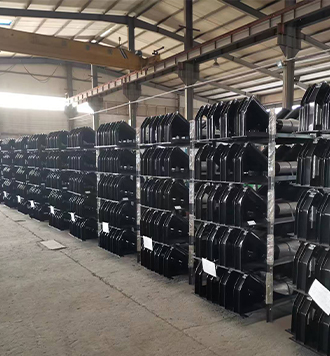 Afrikaans
Afrikaans  Albanian
Albanian  Amharic
Amharic  Arabic
Arabic  Armenian
Armenian  Azerbaijani
Azerbaijani  Basque
Basque  Belarusian
Belarusian  Bengali
Bengali  Bosnian
Bosnian  Bulgarian
Bulgarian  Catalan
Catalan  Cebuano
Cebuano  Corsican
Corsican  Croatian
Croatian  Czech
Czech  Danish
Danish  Dutch
Dutch  English
English  Esperanto
Esperanto  Estonian
Estonian  Finnish
Finnish  French
French  Frisian
Frisian  Galician
Galician  Georgian
Georgian  German
German  Greek
Greek  Gujarati
Gujarati  Haitian Creole
Haitian Creole  hausa
hausa  hawaiian
hawaiian  Hebrew
Hebrew  Hindi
Hindi  Miao
Miao  Hungarian
Hungarian  Icelandic
Icelandic  igbo
igbo  Indonesian
Indonesian  irish
irish  Italian
Italian  Japanese
Japanese  Javanese
Javanese  Kannada
Kannada  kazakh
kazakh  Khmer
Khmer  Rwandese
Rwandese  Korean
Korean  Kurdish
Kurdish  Kyrgyz
Kyrgyz  Lao
Lao  Latin
Latin  Latvian
Latvian  Lithuanian
Lithuanian  Luxembourgish
Luxembourgish  Macedonian
Macedonian  Malgashi
Malgashi  Malay
Malay  Malayalam
Malayalam  Maltese
Maltese  Maori
Maori  Marathi
Marathi  Mongolian
Mongolian  Myanmar
Myanmar  Nepali
Nepali  Norwegian
Norwegian  Norwegian
Norwegian  Occitan
Occitan  Pashto
Pashto  Persian
Persian  Polish
Polish  Portuguese
Portuguese  Punjabi
Punjabi  Romanian
Romanian  Russian
Russian  Samoan
Samoan  Scottish Gaelic
Scottish Gaelic  Serbian
Serbian  Sesotho
Sesotho  Shona
Shona  Sindhi
Sindhi  Sinhala
Sinhala  Slovak
Slovak  Slovenian
Slovenian  Somali
Somali  Spanish
Spanish  Sundanese
Sundanese  Swahili
Swahili  Swedish
Swedish  Tagalog
Tagalog  Tajik
Tajik  Tamil
Tamil  Tatar
Tatar  Telugu
Telugu  Thai
Thai  Turkish
Turkish  Turkmen
Turkmen  Ukrainian
Ukrainian  Urdu
Urdu  Uighur
Uighur  Uzbek
Uzbek  Vietnamese
Vietnamese  Welsh
Welsh  Bantu
Bantu  Yiddish
Yiddish  Yoruba
Yoruba  Zulu
Zulu plastic bearing housing
The Evolution and Advantages of Plastic Bearing Housings
In the realm of modern engineering and manufacturing, the choice of materials can significantly impact both the performance and longevity of machinery. One area that has seen a notable shift is in bearing housings, where the use of plastic has emerged as a viable and advantageous alternative to traditional materials like metal. This article explores the benefits of plastic bearing housings, their applications, and the evolving technology surrounding them.
Understanding Bearing Housings
Bearing housings are essential components that encase roller or ball bearings, providing the necessary support and alignment while also protecting the bearings from dirt, dust, and moisture. Traditionally manufactured from metals such as cast iron or aluminum, these housings are designed to withstand considerable loads and operating conditions. However, with increasing innovation and a focus on efficiency, plastic bearing housings are gaining traction in various industries.
Advantages of Plastic Bearing Housings
1. Weight Reduction One of the most significant advantages of using plastic for bearing housings is the reduction in weight. Plastic is inherently lighter than metal, which can lead to overall weight savings in machinery and equipment. This reduction is particularly beneficial in applications where minimizing weight is crucial, such as in the aerospace or automotive industries, where fuel efficiency is directly tied to weight.
2. Corrosion Resistance Unlike metal bearing housings, plastic does not corrode when exposed to moisture or aggressive chemicals. This characteristic makes plastic an ideal choice for applications in harsh environments, such as in food processing or chemical manufacturing, where exposure to caustic substances is common.
3. Cost-effectiveness Plastic materials are typically less expensive to produce and process than metals. The manufacturing process for plastic bearing housings often allows for complex shapes and designs to be formed with ease, resulting in reduced machining costs and shorter production times. This cost-effectiveness is appealing for both manufacturers and end-users alike.
plastic bearing housing

4. Noise Reduction Plastic bearing housings often exhibit better sound-dampening properties compared to their metal counterparts. This trait is essential in applications where noise reduction is a priority, such as in household appliances or office equipment. The use of plastic can lead to quieter operational environments, which is increasingly valued in today's consumer market.
5. Thermal Properties Plastics generally exhibit lower thermal conductivity than metals. This property can help maintain operating temperatures within a suitable range, thereby enhancing the performance and durability of the bearings housed within. In addition, some engineered plastics can withstand higher temperatures than conventional plastics, expanding their usability in various applications.
Applications of Plastic Bearing Housings
Plastic bearing housings are used in a wide range of sectors. In the automotive industry, they can be found in applications such as electric window mechanisms and seat adjustments. In the food and beverage sector, they are utilized in machinery where hygiene is paramount, as plastics are easier to clean and maintain. Industries focused on consumer electronics also benefit from plastic housing due to the lightweight and aesthetic flexibility that plastics offer.
Future Developments in Plastic Bearing Technology
As technology advances, the performance characteristics of plastics continue to improve. Enhanced materials such as reinforced thermoplastics are being developed, which provide even greater strength and durability. The integration of smart materials and additives that enhance wear resistance and load-bearing capacity is expected to further expand the applications of plastic bearing housings, making them an increasingly popular choice in demanding environments.
Conclusion
In summary, plastic bearing housings present a multitude of advantages over traditional metal options, including weight reduction, corrosion resistance, cost-effectiveness, noise reduction, and favorable thermal properties. Their versatility across various industries underscores the importance of innovation in material selection. As we move forward, it is evident that plastic bearing housings will play a crucial role in the evolution of modern engineering, paving the way for smarter, lighter, and more efficient machinery.
-
Revolutionizing Conveyor Reliability with Advanced Rubber Lagging PulleysNewsJul.22,2025
-
Powering Precision and Durability with Expert Manufacturers of Conveyor ComponentsNewsJul.22,2025
-
Optimizing Conveyor Systems with Advanced Conveyor AccessoriesNewsJul.22,2025
-
Maximize Conveyor Efficiency with Quality Conveyor Idler PulleysNewsJul.22,2025
-
Future-Proof Your Conveyor System with High-Performance Polyurethane RollerNewsJul.22,2025
-
Driving Efficiency Forward with Quality Idlers and RollersNewsJul.22,2025





























